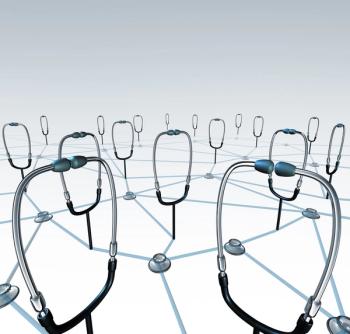
We all become much better therapists if we have confidence in our healing gifts and focus on enhancing our relationships with patients.

We all become much better therapists if we have confidence in our healing gifts and focus on enhancing our relationships with patients.

Treatments that work well for most don’t work well for all. And even effective treatments have side effects and complications. This is true of medication and surgery-and it is also true of psychotherapy.

Many years ago, the model approach to mental health treatment was the therapeutic community: "As Aristotle noted long ago, man is a social animal and only in a social unit can he experience a whole life." More in this blog.

The author concludes that people inappropriately placed in psychiatric hospitals can lead to grave violation of human rights.

Mental disorders have become a global commodity. According to the author, "a diagnostic fad heavily promoted first in the US has now quickly spread around the world."

How do we catch up with other developed countries to create a compassionate, cost-effective mental health system? Psychiatric Times posed this question to some of the leading experts in the field.

Recently there has been considerable controversy and confusion around how the word "psychosis" should be used, if indeed it should be used at all. More in this commentary.

Dostoevsky wrote 135 years ago, but his critique of forensic psychiatry and forensic psychology stands the test of time.

In this commentary, the author states, “We must get back to treating the whole person, not just his brain circuits. The brain is involved in all we do and what we are, but it is also itself influenced by our psychology and social context.” Care to weigh in?

Everyone, in their own way, wants what's best for people with mental health challenges, but risks and benefits are interpreted through a personal lens.

What can we do to fix our broken mental health system? Psychiatric Times posed this question to some of the leading experts in the field.

For those suffering from severe mental illness, this is the worst of times. Walk the streets of any city and you will find multitudes of the mentally ill left homeless to fend as best they can for themselves.

“Schizophrenia” is a name, not a disease. You are about to read the life story of a remarkable man who describes how he overcame poverty, orphanhood, and schizophrenia to become an author, an LCSW, a leader in the mental health advocacy movement, and an inspiration for many others.

There is no clear boundary separating religious and political extremism from psychiatric illness. One man's cherished belief is another man's delusion. More in this commentary.

Some inflexible anti-psychiatrists are blind ideologues who see only the limits and harms of mental health treatment, not its necessity or any of its benefits. More in this commentary.

This is the fourth in a series of blogs devoted to our society’s shameful neglect of people with severe mental illness.

Here's a fascinating study of consumer attitudes towards doctors among patients receiving antidepressants. The conclusions help us understand what goes wrong in the doctor-patient relationship and suggest steps needed to fix it.

If we didn't so stigmatize the severely mentally ill, we would feel an urgent responsibility to rescue them immediately from prison and homelessness.

A mother recalls seeing a donation box with a photo of a little boy with leukemia in a grocery store checkout line but never one of a child with serious mental illness. How can this be if twice as many children and young people die from suicide than those who die of all cancers combined? More in this commentary.

The institutions of yesterday were overcrowded, noisy, and often had a distinctive odor. Patients were neglected and mistreated. Yet those problems have been replaced with a different set. More in this commentary.

Some doubt that even $650 million will go very far in speeding up the solution to the vast jigsaw puzzle known as neuroscience. According to this author, we have learned a great deal in basic science, but nothing at all that translates to better clinical care.

Amidst the anguish and heartbreak felt by the victims’ families, there are always two haunting questions: What motivates someone to kill strangers wholesale in a seemingly senseless way? And what, if anything, can we do to stop these tragedies from recurring?

Death penalty cases are extravagantly expensive and drain funding from programs that might actually reduce crime.

I get a strong and encouraging response whenever I write or talk about saving normals from excessive treatment. I get almost no response when I write or talk about the shameful and wasteful neglect of the severely ill. We mistreat them barbarously and almost no one seems to care.

The tripling of ADHD rates in the last 20 years and skyrocketing use of stimulants are sure signs of a fad. The forces promoting it are, and will continue to be, formidable. More in this commentary.

In just 20 years, rates of ADHD have tripled and autism and childhood bipolar disorder have increased forty fold. The last thing our kids need is to be misdiagnosed with “Sluggish Cognitive Tempo” and bathed in even more stimulant meds. More in this opinion piece.

Firearms are the means of death in thousands of suicides and homicides every year. There is no denying that free access and wide availability has made gun death a major threat to our public health. More in this commentary.

Mental health professionals can predict high-risk groups but can’t pick out who will go on a rampage. Murder is too much of a-needle in-the-haystack rare event to ever be reliably prevented with psychiatric tools. More in this commentary.

ADHD has more than tripled in just 20 years-it is now diagnosed in 11% of all kids and in an astounding 20% of teenage boys. More in this commentary.

What harms are there in labelling (or rather often mislabelling) more than a quarter of our troops as mentally ill? The harms are numerous and potentially quite dangerous. . .